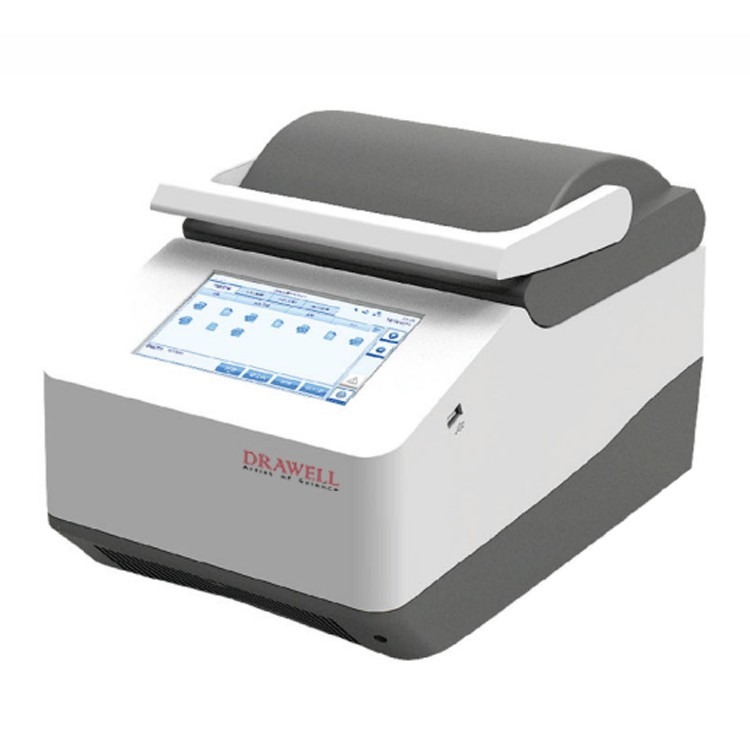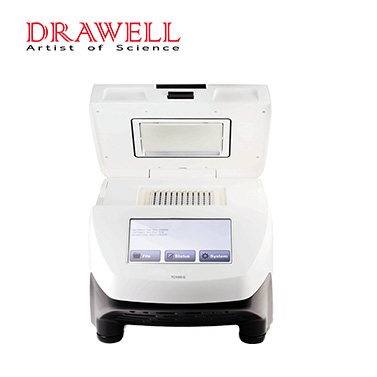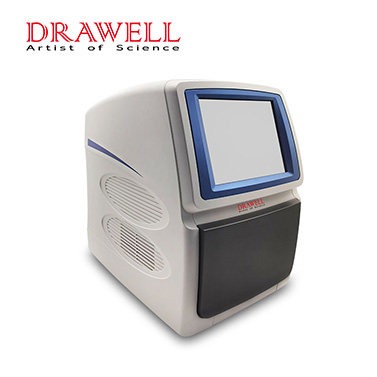Polymerase Chain Reaction (PCR) is a fundamental molecular biology technique that has transformed genetic research, diagnostics, and a variety of biotechnology applications. DNA polymerase, an enzyme required for DNA replication, is at the heart of PCR. In this article, we will focus on the topic of DNA polymerase used in PCR, exploring the significance of DNA polymerase in PCR, the common types of DNA polymerases used, their roles in the amplification of DNA, and how to choose the right select the most appropriate DNA polymerase in PCR.

The Significance of DNA Polymerase Used in PCR
DNA polymerase is an essential enzyme in PCR because it catalyzes the synthesis of new DNA strands, allowing DNA amplification. However, due to their unique properties and requirements, not all DNA polymerases are suitable for PCR.
The ideal DNA polymerase for PCR should have the following characteristics:
Thermal Stability: PCR requires cycling at high temperatures, including denaturation at 94-98°C. The DNA polymerase must be able to withstand temperature changes without becoming denatured.
Processivity: A good DNA polymerase should efficiently add nucleotides to the growing DNA chain, ensuring the target DNA sequence is replicated quickly and accurately.
Fidelity: PCR aims for high specificity and accuracy in DNA amplification. DNA polymerases should have a low error rate to minimize the introduction of mutations during amplification.

6 Key Types of DNA Polymerases Used in PCR
1. Taq Polymerase (Thermus aquaticus)
Taq polymerase is a well-known DNA polymerase that is used in PCR. It was discovered in the thermophilic bacterium Thermus aquaticus.
Taq polymerase is highly heat-stable, allowing it to be used in high-temperature PCR cycles. It is still active at temperatures as high as 94-98°C.
While Taq polymerase is strong and widely used, it lacks 3′ to 5′ proofreading activity, resulting in a higher error rate when compared to other DNA polymerases. This limitation can cause errors to accumulate during PCR amplification.
2. Pfu Polymerase (Pyrococcus furiosus)
Pfu polymerase is derived from the hyperthermophilic archaeon Pyrococcus furiosus.
It is known for its exceptional thermal stability, similar to Taq polymerase, and can withstand high-temperature PCR conditions.
One of the key advantages of Pfu polymerase is its 3′ to 5′ exonuclease (proofreading) activity, resulting in a lower error rate during DNA replication. This makes Pfu a preferred choice for applications requiring high fidelity, such as DNA sequencing and cloning.
3. DNA Polymerase I
DNA Polymerase I, which was discovered in Escherichia coli, is used in a variety of molecular biology techniques, including PCR.
The Klenow fragment of DNA Polymerase I is frequently used in PCR. This fragment retains polymerase activity as well as 3′ to 5′ exonuclease activity, allowing for DNA synthesis as well as proofreading.
4. High-Fidelity DNA Polymerases
Several high-fidelity DNA polymerases for PCR applications have been developed, combining the thermal stability of Taq polymerase with the proofreading capacity of Pfu polymerase.
These polymerases provide a good balance of robust amplification and high fidelity, making them suitable for a wide range of PCR applications requiring precision. Phusion DNA Polymerase, KAPA HiFi DNA Polymerase, and Q5 High-Fidelity DNA Polymerase are a few examples.
5. Reverse Transcriptase (RT) Polymerases
RT-PCR (Reverse Transcription PCR) combines reverse transcriptase activity with PCR. It is used to amplify RNA sequences by first converting them into complementary DNA (cDNA) using reverse transcriptase and then amplifying the cDNA with a DNA polymerase.
Common RT polymerases include Moloney Murine Leukemia Virus Reverse Transcriptase (M-MLV RT) and avian myeloblastosis virus (AMV) reverse transcriptase.
6. Hot-Start DNA Polymerases
Hot-start DNA polymerases are modified versions of regular DNA polymerases. They are inactive at lower temperatures (usually room temperature) and become active only when the PCR reaction reaches the denaturation temperature.
This design reduces non-specific amplification and primer-dimer formation. Examples include Platinum Taq DNA Polymerase and AccuPrime Taq DNA Polymerase.
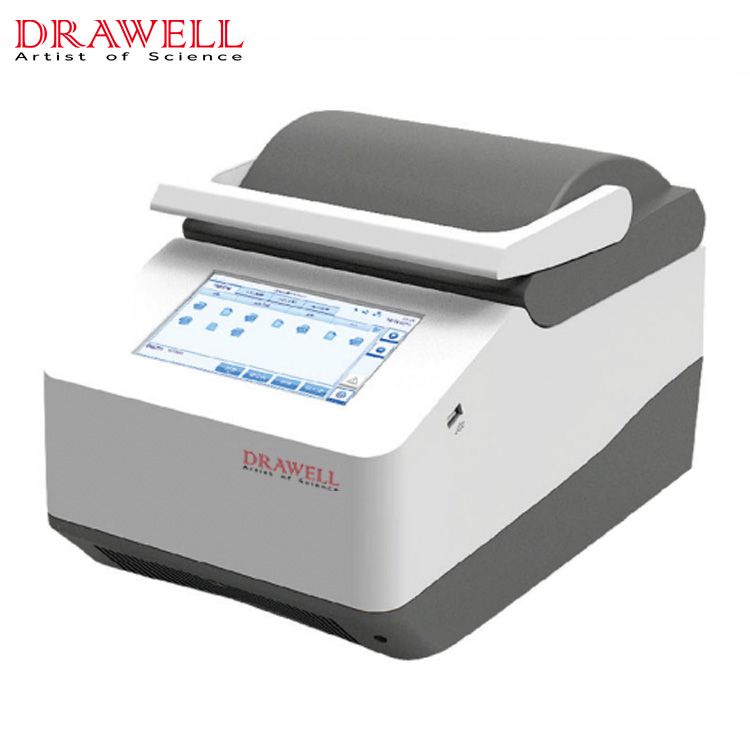
A Step-by-step guide to Select the Most Appropriate DNA Polymerase Used in PCR
It is critical to choose the right DNA polymerase for your PCR (Polymerase Chain Reaction) experiment in order to obtain accurate and reliable results. The nature of your experiment, the desired characteristics of the polymerase, and the specific requirements of your PCR reaction should all be considered when selecting a DNA polymerase.
1. Determine Your PCR Requirements
Start by defining the specific needs of your PCR experiment. Consider the following factors:
Fidelity: Do you require high-fidelity amplification to minimize the introduction of errors in the DNA sequence? If so, choose a polymerase with a proofreading activity.
Thermal Stability: Are you performing PCR under extreme temperature conditions, such as high-temperature PCR or long amplification cycles? In such cases, select a polymerase with high thermal stability.
Amplicon Length: Consider the length of the DNA fragment you intend to amplify. Some polymerases are better suited for longer amplicons, while others may perform well with shorter fragments.
Template Type: Are you amplifying DNA from genomic DNA, cDNA, or other sources? Some polymerases are optimized for specific template types.
2. Assess Available Polymerases
Make a list of the commercially available DNA polymerases. Many polymerases have been optimized for specific applications, and some have been engineered to excel in specific areas.
3. Examine Product Specifications
Examine the product specifications and documentation provided by the manufacturers for each DNA polymerase carefully. Look for the following details:
Fidelity: If available, look for the error rate. Because of their proofreading ability, high-fidelity polymerases typically have a lower error rate.
Extension Speed: Consider the processivity and extension rate of the polymerase. In some cases, faster extension rates may be advantageous.
Thermal Stability: Check to see if the polymerase can withstand the temperature conditions of your PCR experiment.
Template Compatibility: Some polymerases are tuned to work with specific templates, such as genomic DNA, cDNA, or difficult templates like GC-rich sequences.
Amplification Length: Determine the recommended range of amplicon sizes for each polymerase.
4. Consider Specialized Features
Some DNA polymerases offer specialized features, such as hot-start technology (to reduce non-specific amplification), compatibility with multiplex PCR, and resistance to PCR inhibitors. Evaluate whether any of these features are essential for your experiment.
5. Read User Reviews and Published Studies
Look for user reviews and published studies that discuss the performance of the polymerase in question. The experiences of other researchers can provide valuable insights into the polymerase’s performance in real-world applications.
6. Perform Test Reactions
If you are unsure about the best polymerase for your specific experiment, consider performing test reactions with different polymerases to compare their performance. This can help you select the one that best meets your requirements.
7. Consult with Colleagues and Experts
Seek advice from colleagues, mentors, or experts in the field who may have experience with the polymerases you are considering. They can offer valuable recommendations based on their own experiences.
8. Cost Considerations
When choosing a DNA polymerase, keep your budget in mind. Some specialized polymerases may be more expensive, so select one that meets your needs while remaining within your budget.
9. Document Your Choice
Once you’ve made your choice, document it, including the manufacturer, product name, and any specific product codes, to ensure consistency in your experiments and future reference.
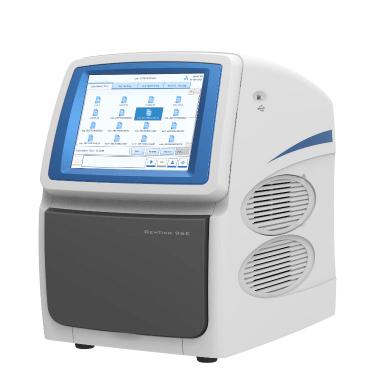
Conclusion
The heart of the PCR process is DNA polymerase, which allows for the exponential amplification of DNA sequences. There are various types of DNA polymerases available to meet specific needs, depending on factors such as thermal stability, fidelity, and processivity. The choice of DNA polymerase is an important consideration when designing PCR experiments to achieve accurate and reliable results in a variety of applications, from genetic research to diagnostics.

